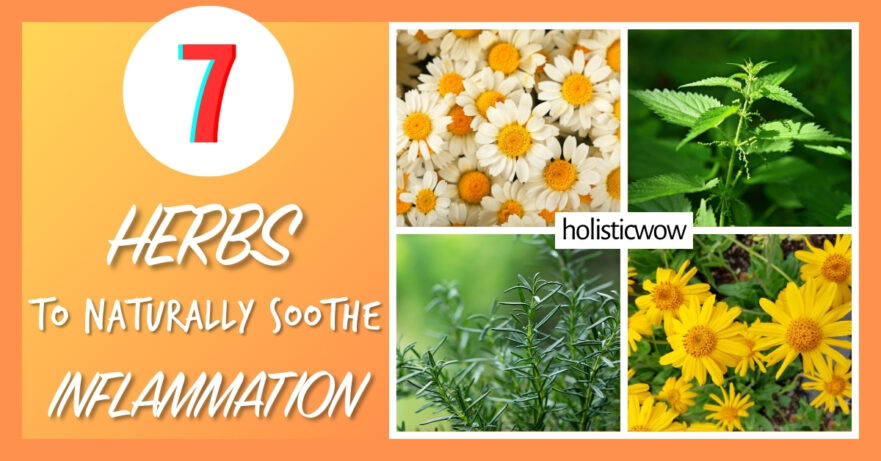In this article about herbs for inflammation:
🌿 Herbs for Inflammation Management | 📜 Herbal Blends for Inflammation | ☯️ Integrating Anti-Inflammatory Herbs into Everyday Life | 🍵 Internal Blends for Inflammation | 👐 Topical Applications for Inflammation | 🌱 Navigating Herbs Safely
Dealing with inflammation can feel like a constant battle, but nature offers us a powerful arsenal of remedies. We’re focusing on seven standout anti-inflammatory herbs that have stood the test of time and are backed by tradition and science. Each brings unique strengths, offering natural ways to soothe inflammation and enhance well-being without synthetic alternatives.
Whether brewing a calming cup of tea or applying a healing herbal oil, incorporating these plants into your life can offer significant relief and support for inflammation-related issues.
Plus, we’ll guide you on how to safely and effectively use these herbs, alongside lifestyle tips that complement their benefits, to create a holistic approach to managing inflammation.
Key Takeaways
- 🌿 Herbs for inflammation: Integrating anti-inflammatory herbs like chamomile, white willow, and nettle into daily routines can naturally reduce inflammation and enhance overall well-being.
- 🍵 Blend to benefit: Personalized herbal blends, tailored to fit lifestyle and specific needs, maximize the benefits of natural remedies for inflammation management.
- 🍏 Comprehensive care: A holistic approach, combining anti-inflammatory herbs with a nutrient-rich diet, regular physical activity, and adequate hydration, significantly supports the body’s inflammation response.
🌿 Natural Herbs for Inflammation Relief
Inflammation is a common issue that can lead to symptoms like pain, swelling, and irritation, significantly affecting daily life. Managing these symptoms effectively requires more than temporary fixes. It demands understanding natural remedies that address the root causes without adverse effects.
Herbs such as white willow bark, chamomile, nettle, meadowsweet, arnica, rosemary, and calendula have been recognized for their ability to counter inflammation.
Each of these herbs brings a unique set of benefits, drawing from both traditional practices and validated by scientific research, to offer a spectrum of solutions for managing inflammation.
White willow bark
White willow bark has been a go-to for natural pain relief and reducing inflammation for centuries. It offers a milder alternative to aspirin with the active compound salicin. This remarkable herb is especially beneficial for chronic conditions such as headaches and arthritis, providing a natural method to alleviate discomfort. Incorporating White willow bark into your wellness routine can be as straightforward as brewing a soothing tea. This method allows you to adjust the strength to your liking and gradually experience its benefits, ensuring a gentle approach to pain management.
Chamomile
Chamomile is more than a bedtime ritual; it’s a natural anti-inflammatory that can soothe more than just the mind. Its calming effects are great for digestive issues and can help ease skin irritations like eczema or sunburn. Adding chamomile tea to your evening can help unwind your body and mind, while a chamomile infusion applied to the skin can soothe and heal. Its anti-inflammatory properties extend to helping with conditions like hemorrhoids when used in sitz baths, showcasing its versatility and gentle healing power.
Nettle
Nettle is not just a weed to avoid; it’s a nutritional powerhouse that tackles inflammation head-on. It benefits those with allergies or joint pain, acting as a natural antihistamine and anti-inflammatory. Drinking nettle tea regularly can seamlessly introduce this herb’s benefits into your life. Beyond tea, cooking with nettle leaves—like spinach—can offer a nutrient boost to meals. Its rich mineral content, including iron, potassium, and magnesium, supports overall health while combating inflammation from within.
Meadowsweet
Meadowsweet offers a natural way to manage pain with its aspirin-like compounds, beneficial for those wary of synthetic drugs’ side effects. As a soothing remedy, meadowsweet tea is gentle on your digestive system and helps reduce acidity and treat colds, making it an excellent choice for natural pain management. Its compounds, such as salicin, convert to salicylic acid in the body, providing a gentle, protective effect on the stomach lining while offering relief from various aches.
Arnica
Arnica is a potent herb utilized topically for bruises, aches, and sprains, renowned for its rapid efficacy in diminishing bruising and swelling. Crafting an arnica-infused oil at home offers a natural, hands-on remedy for those inclined towards holistic methods. You can harness its therapeutic benefits by infusing arnica flowers in a carrier oil for several weeks. This preparation results in a convenient, topically applied remedy, facilitating swift healing directly to affected areas without relying on commercial creams or gels. It is crucial to remember that arnica should only be used on the skin and not on open wounds or broken skin, ensuring safe and effective use. Additionally, arnica should never be used internally, as it can be toxic if ingested.
Rosemary
Rosemary is more than just a culinary herb; it’s a mood booster and inflammation fighter. Its aromatic oils can be cooked with or diffused for not just flavor but also health benefits. If you’re experiencing muscle stiffness or pain, a homemade rosemary oil massage could be the relief you need. Simply infuse rosemary in a carrier oil, like olive or coconut oil, and massage it into the painful areas. This not only helps with inflammation but also enhances circulation and provides a sense of relaxation.
Calendula
Calendula is incredibly soothing for the skin, making it perfect for healing cuts, scrapes, and rashes. For an easy, at-home remedy, calendula petals can be infused in oil, capturing the plant’s healing properties. This infused oil can then be applied directly to the skin, promoting healing, reducing inflammation, and providing a moisturizing effect. Its gentle nature makes it suitable for all skin types, including sensitive skin, aiding in the skin’s natural healing process.
Incorporating these seven herbs into daily routines—through teas, infusions, dietary incorporation, or topical applications—presents a way to manage inflammation naturally. This approach not only aligns with a more natural lifestyle but also complements existing health practices, offering a balanced way to support the body’s response to inflammation.
Adopting these herbal remedies provides a practical and effective strategy to naturally mitigate inflammation’s impact, enhancing overall well-being without solely relying on synthetic options.
📜 Herbal Blends for Comprehensive Inflammation Management
As we navigate daily challenges, inflammation can become a recurring obstacle to our well-being. Herbs’ healing properties present an effective way to combat this issue.
Below, you’ll discover carefully crafted recipes that blend traditional herbal wisdom with scientific insight. From soothing teas to potent topical oils, these remedies harness the anti-inflammatory potential of herbs like meadowsweet, arnica, and rosemary, providing targeted support for various inflammation-related discomforts. Whether dealing with digestive unrest or seeking relief from sore muscles, these herbal formulas offer a pathway to natural relief.
🍵 Internal Blends for Inflammation Relief
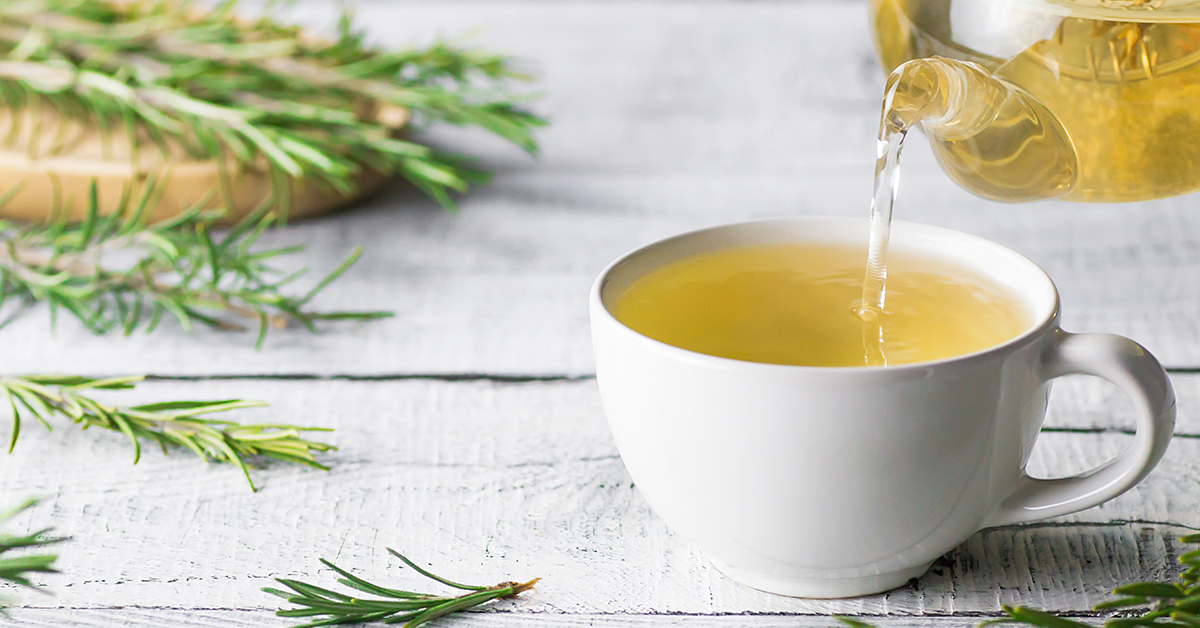
Gentle Soother Tea
Ingredients (for a single serving):
- 1 teaspoon dried chamomile,
- ½ teaspoon dried nettle,
- ¼ teaspoon dried rosemary,
- 1 cup of boiling water.
Preparation:
- Combine chamomile, nettle, and rosemary in a large mug or teapot.
- Pour boiling water over the herbal mix and let it steep for 10-15 minutes for a soothing brew.
- Strain the tea.
Enjoy once daily in the evening or morning to help relax and mildly reduce inflammation.
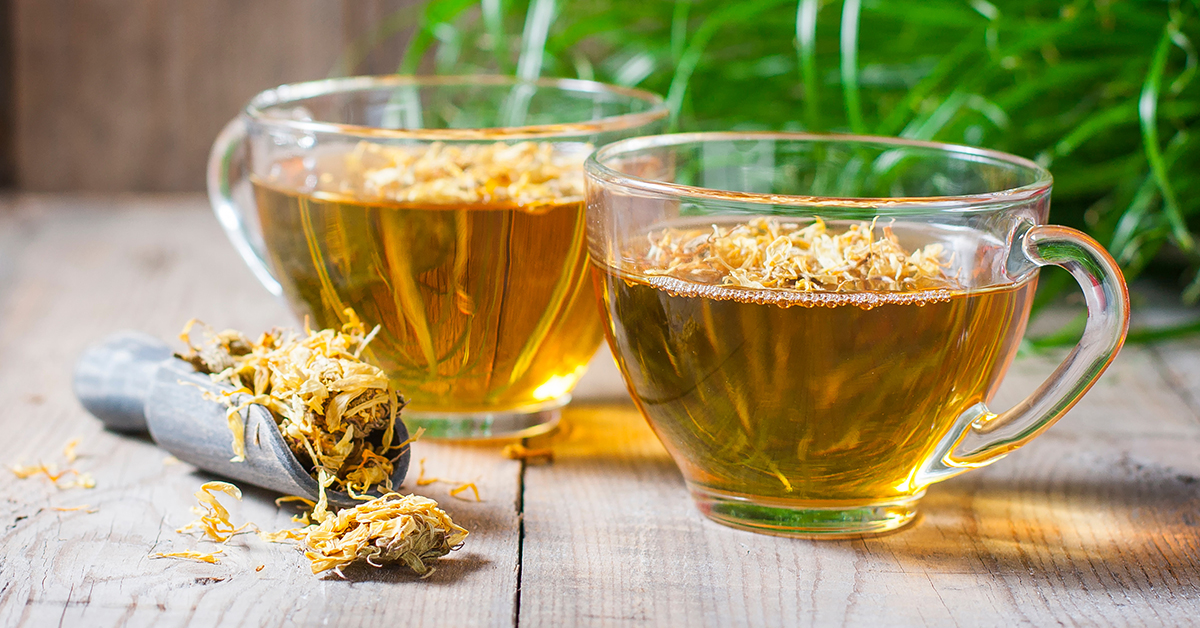
Digestive Soothe & Comfort Tea
Ingredients (for a single serving):
- ½ teaspoon dried chamomile,
- ½ teaspoon dried calendula,
- ½ teaspoon dried meadowsweet,
- 1 cup of boiling water.
Preparation:
- Mix chamomile, calendula, and meadowsweet in a large mug or teapot.
- Add boiling water, cover, and steep for 15 minutes to create a comforting digestive aid.
- Strain the tea.
Drink up to twice daily to support digestive health and ease inflammation.
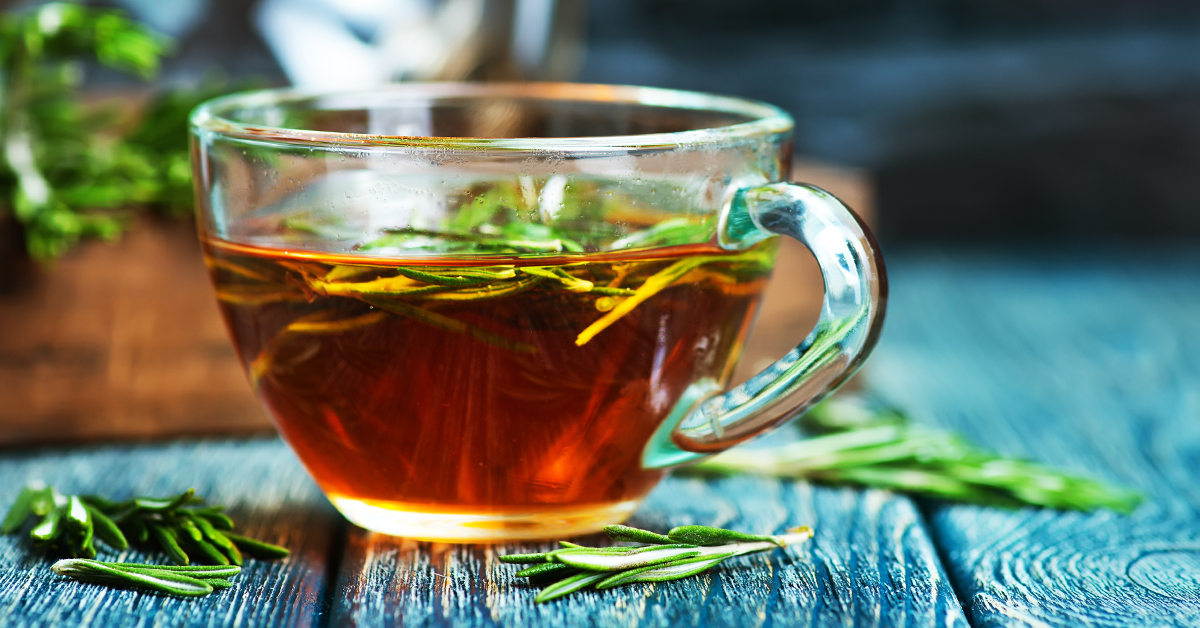
Herbal Inflammation Tamer
Ingredients (for a single serving):
- ½ teaspoon dried nettle,
- ½ teaspoon dried rosemary,
- ¼ teaspoon dried calendula,
- 1 liter of boiling water.
Preparation:
- Blend nettle, rosemary, and calendula in a large mug or teapot.
- Pour boiling water over the herbs, cover, and steep for 15 minutes for a more potent anti-inflammatory effect.
- Strain before drinking.
Drink up to twice daily to combat inflammation throughout the body.
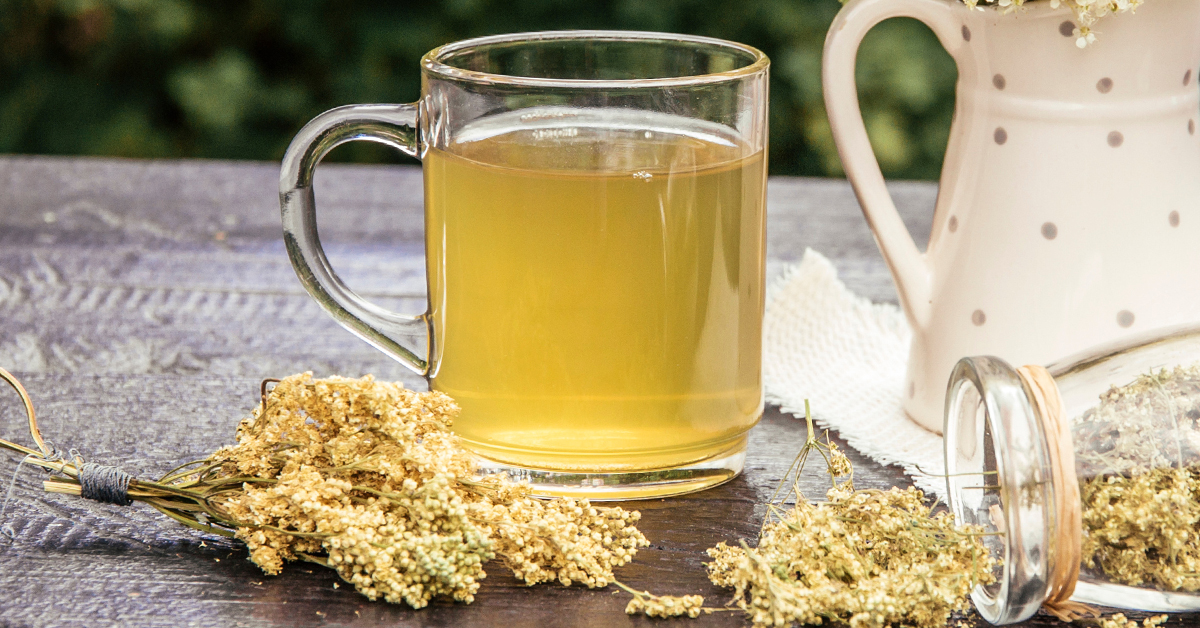
Intense Joint Relief Decoction
Ingredients:
- ½ teaspoon dried white willow bark,
- ½ teaspoon dried meadowsweet,
- ¼ teaspoon dried nettle,
- 2 cups of water.
Preparation:
- To prepare this blend, add white willow bark, meadowsweet, and nettle to water in a saucepan.
- Heat it until it boils, then lower the heat and let it simmer for about 30 minutes.
- The liquid should reduce to about half its original volume during this time.
- Once done, strain the herbs, and your decoction will be ready.
Drink a cup of this concentrated decoction once a day, aiming to help with joint pain and significant inflammation by leveraging the potent anti-inflammatory properties of the herbs involved.
👐 Topical Applications for Inflammation
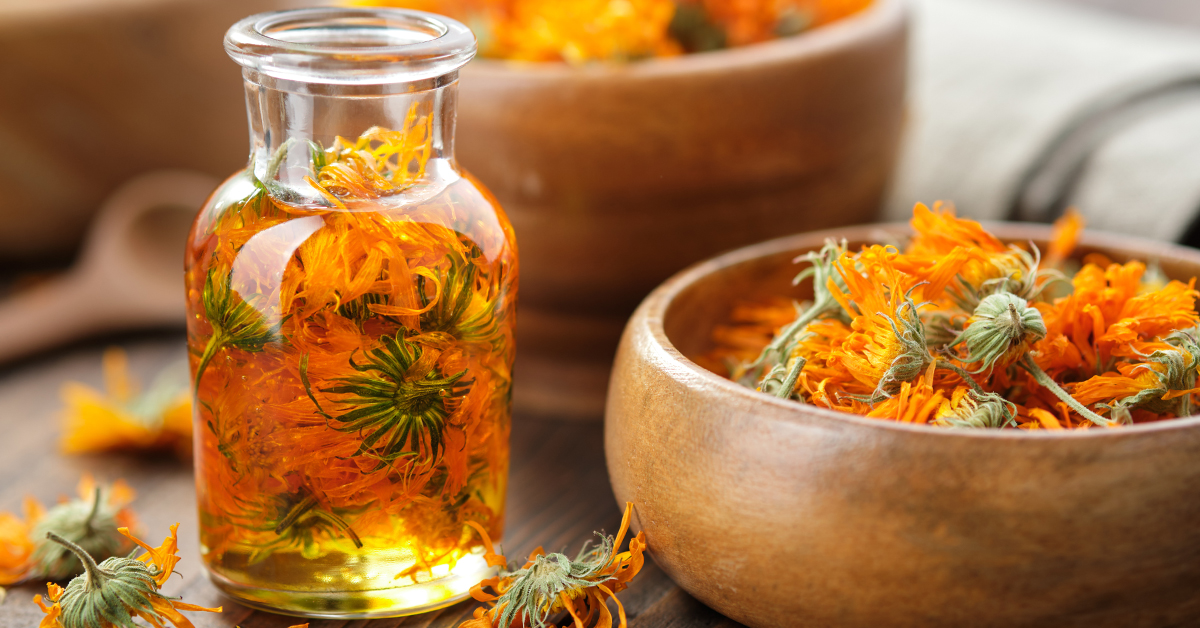
Arnica and Calendula Soothing Oil
Ingredients:
- ¼ cup dried arnica flowers,
- ¼ cup dried calendula petals,
- 1 cup of carrier oil (such as olive or jojoba oil).
Preparation:
- Combine arnica and calendula with carrier oil in a jar.
- Let sit in a warm spot for 4-6 weeks, shaking occasionally.
- After the infusion period, strain the oil.
This homemade soothing oil can be applied topically to affected areas to help heal bruises, reduce swelling, and soothe skin irritations.
It’s important to emphasize that this arnica and calendula oil is intended for external use only. Arnica, especially, should never be used on open wounds or broken skin and must not be ingested under any circumstances due to its potential toxicity when used internally. If you have sensitive skin or are prone to allergies, perform a patch test before using the oil widely. Pregnant or breastfeeding women should consult with a healthcare professional before using herbal products, even topically. Always be cautious and consult a healthcare provider if you have concerns or pre-existing conditions.
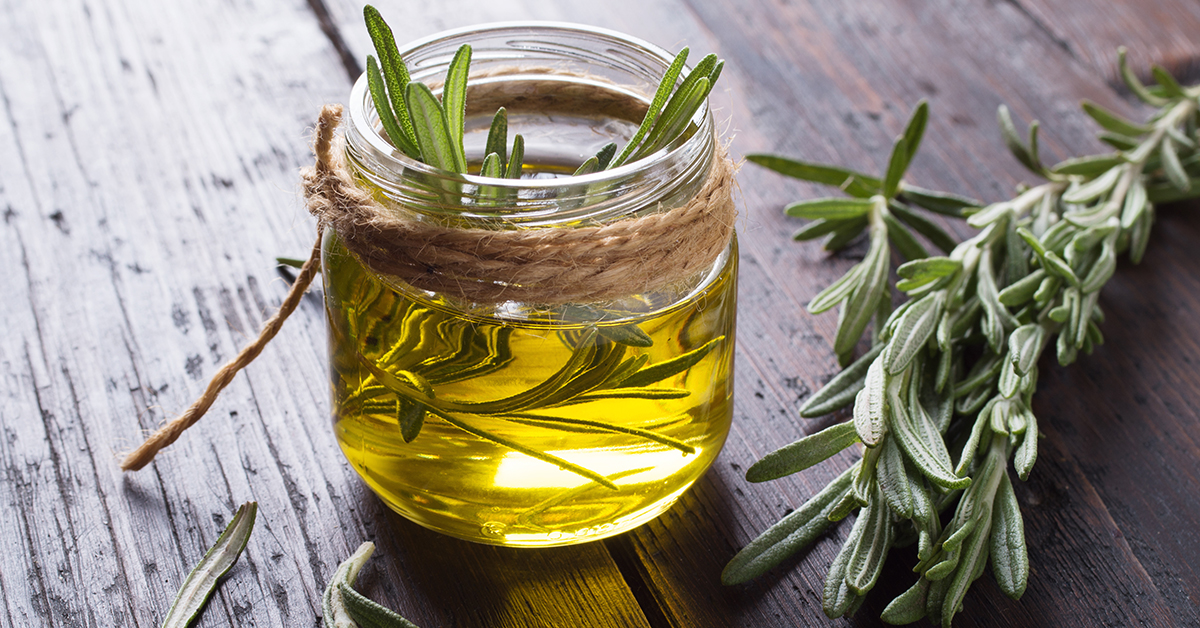
Rosemary and Nettle Pain Relief Massage Oil
Ingredients:
- ¼ cup dried rosemary leaves,
- ¼ cup dried nettle leaves,
- 1 cup of carrier oil (olive or almond oil preferred).
Preparation:
- Gently warm the carrier oil and herbs in a double boiler for 2-3 hours.
- Allow them to cool, then strain.
Massage this oil into sore muscles or joints to relieve pain, reduce inflammation, and improve circulation.
These recipes leverage the natural anti-inflammatory and healing properties of the herbs discussed. For those looking to minimize reliance on synthetic medications and explore natural remedies, these preparations offer a holistic approach to managing inflammation and pain.
☯️ Integrating Anti-Inflammatory Herbs into Everyday Life
Incorporating anti-inflammatory herbs into daily routines can be a straightforward and effective way to manage inflammation and enhance overall well-being.
Here’s how to practically apply herbs like white willow bark, chamomile, nettle, and others to your lifestyle, along with some complementary practices for a holistic approach to inflammation management.
Daily Use and Lifestyle Integration
- 🫖 Morning herbal kickstart: Begin your day with a cup of Gentle Soother Tea or Digestive Soothe & Comfort Tea. This sets a positive tone for the day and helps reduce inflammation from the start.
- 🥤 Herbal water infusions: Add fresh or dried herbs like nettle or rosemary to your water bottle for a continuous anti-inflammatory boost. This not only enriches the water with herbal benefits but also encourages regular hydration.
- 🌱 Cooking with anti-inflammatory herbs: Integrate herbs directly into your meals. For example, rosemary can be added to roasted dishes for its flavor and anti-inflammatory properties, while nettles can be cooked similarly to spinach and incorporated into various recipes.
- 🍵 Evening relaxation teas: Cap off your day with a cup of your preferred herbal blend, such as the Herbal Inflammation Tamer. This supports your body’s natural inflammation management processes and helps prepare you for restorative sleep.
Complementary Practices for Enhanced Benefit
- 🥦 Nutrient-rich diet: Foods high in antioxidants and anti-inflammatory compounds, such as omega-3 fatty acids found in nuts and fish, can significantly reduce inflammation markers in the body. A diet that includes a variety of fruits, vegetables, whole grains, and healthy fats supports the body’s natural ability to manage inflammation.
- 🏃♂️ Regular physical activity: Exercise stimulates the production of anti-inflammatory chemicals in the body. Even moderate activity, such as walking or yoga, can help reduce inflammation over time. It’s not just about the intensity but the consistency of being active.
- 💧 Adequate hydration: Water supports all body functions, including flushing toxins and transporting nutrients to cells. Staying well-hydrated helps reduce the burden on your kidneys and liver, which are organs crucial for filtering out waste products and indirectly support inflammation management.
- 🧘♀️ Mindfulness and stress reduction: Chronic stress triggers the release of pro-inflammatory cytokines. Techniques that reduce stress, like meditation, deep breathing, and yoga, can lower levels of inflammation in the body. These practices help manage stress and its inflammatory effects, making them excellent complements to herbal interventions.
- 🧖♀️ Sauna sessions: The heat from saunas increases circulation and promotes sweating, which can help eliminate toxins from the body. Regular sauna use has been linked to lower inflammation markers, making it a valuable adjunct to other anti-inflammatory practices.
Each of these practices contributes to a comprehensive strategy for managing inflammation. Incorporating them into your lifestyle and the targeted use of anti-inflammatory herbs can enhance your overall health and well-being.
However, it’s important to remember that these practices should complement, not replace, medical advice from healthcare professionals, especially for individuals with chronic conditions or specific health concerns.
🌱 Navigating Herbs Safely
Starting with small doses is the first step when adding herbal remedies to your health routine.
This approach lets you see how you respond and adjust amounts for the best effect, keeping safety in mind. While many herbs are safe, everyone’s body reacts differently. If you notice any side effects, it’s important to stop and think about what might be causing them.
Remember, herbs can sometimes interact with prescription medicines. These interactions might make your medicines work too well or not well enough, which is why talking to a healthcare provider or an herbalist is essential. This is especially crucial if you’re pregnant, breastfeeding, taking medications regularly, or have an existing health condition. Getting advice tailored to your situation can help you avoid any unnecessary risks.
For kids and older adults, being extra careful with herbs is important. Their bodies might react more strongly to herbal remedies, and the chance of side effects or interactions could be greater. Before giving herbal treatments to children or elderly family members, getting advice from a professional is a must to ensure their safety.
By being cautious and seeking expert advice when needed, you can make herbal remedies a safe part of your wellness plan. This careful approach allows you to enjoy the benefits of herbs while keeping yourself and your family safe.
We encourage trying the herbal blends highlighted, such as the Gentle Soother Tea or the Digestive Soothe & Comfort Tea. Observing how these herbal infusions influence your day-to-day wellness can be incredibly revealing, helping you to identify what works best for your unique needs.
In addition to these herbal solutions, adopting a lifestyle that includes a nutrient-rich diet, regular physical activity, and sufficient hydration is crucial. These complementary practices work synergistically with herbal remedies to enhance overall health, contributing to a more balanced and inflammation-resilient body.
FAQ
Which herbs are most effective for reducing inflammation?
Among various herbs known for their anti-inflammatory properties, white willow bark is celebrated for its salicin content, which the body converts into salicylic acid, offering pain relief and reducing inflammation. Meadowsweet, rich in similar compounds, provides gentle relief for inflammatory conditions and is particularly stomach-friendly. Nettle stands out for its broad anti-inflammatory effects, which are beneficial for arthritis or seasonal allergies. While individual responses can vary, these herbs, as part of a comprehensive health strategy that includes diet and exercise, can help effectively manage inflammation.
Can herbs help with arthritis symptoms?
Yes, certain herbs have properties that can alleviate arthritis symptoms. White willow bark and meadowsweet contain natural salicin. This pain-relieving compound acts similarly to aspirin but tends to have fewer stomach-related side effects, making it suitable for managing pain and inflammation. Nettle is known for its broad anti-inflammatory properties, offering relief from joint pain commonly associated with arthritis.
How quickly can I expect to see results from using anti-inflammatory herbs?
The timeline for seeing improvements from anti-inflammatory herbs can vary. Some individuals may notice reduced symptoms such as pain and swelling within days of consistent use, especially with acute conditions. However, achieving significant benefits for chronic inflammation or systemic issues often requires regular use over weeks to months. Consistency in using herbal remedies and maintaining a healthy lifestyle plays a crucial role in their effectiveness. Natural remedies are most beneficial in a holistic health approach, underscoring the importance of patience and a comprehensive wellness strategy.

